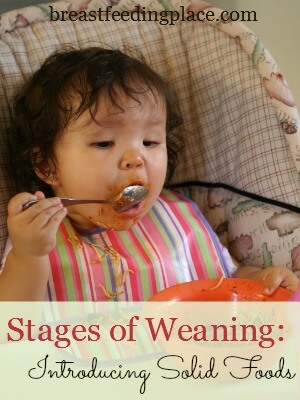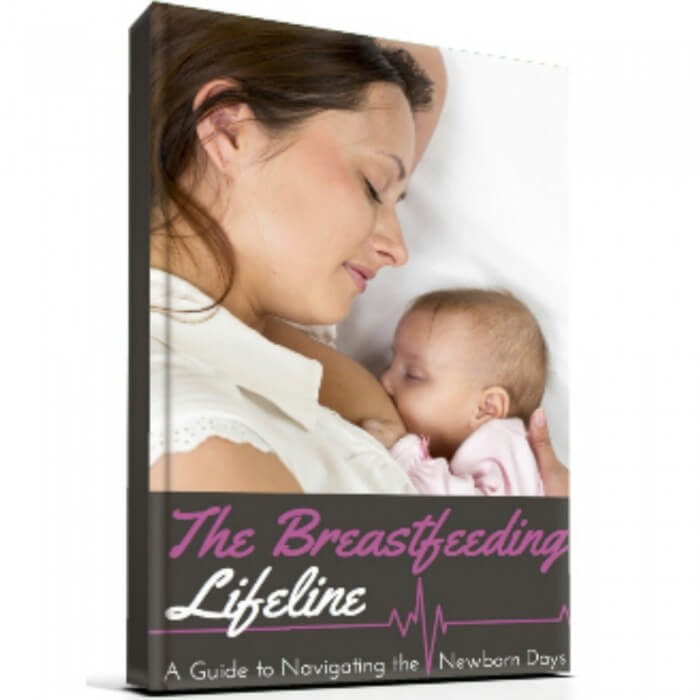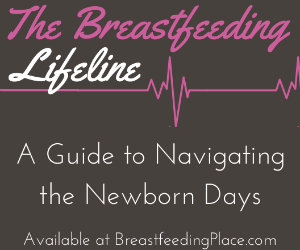 So you realize that your baby isn’t a newborn any longer and you feel as if they are ready to take the next step in feeding–solids. There are several stages of weaning and while the introduction of solid food doesn’t mean you will no longer be nursing, it is the first step towards your child gaining nutrition from sources other than Mommy’s milk. If you’ve never gone through this stage before, you might be unsure of how to begin or what to do.
So you realize that your baby isn’t a newborn any longer and you feel as if they are ready to take the next step in feeding–solids. There are several stages of weaning and while the introduction of solid food doesn’t mean you will no longer be nursing, it is the first step towards your child gaining nutrition from sources other than Mommy’s milk. If you’ve never gone through this stage before, you might be unsure of how to begin or what to do.
There is a vast amount of information out there when it comes to this topic. Everyone seems to have an opinion or advice and it can certainly become overwhelming. Well-meaning friends and families will offer their input and your pediatrician may have other suggestions. It can be very confusing. All mothers want to do what’s best for their babies; what and when you start feeding your infant foods can have a drastic impact on them now and later in life. It’s important to have some knowledge before diving into this stage.
Stages of Weaning: What Happens Now?
Here are some basics that may help you as you enter this new part of your baby’s life.
When is my baby ready for more than breast milk?
Currently, the recommendations to determine if your baby is ready to start solids are:
- Baby should be at least six months of age (W.H.O. and the A.A.P. both give this recommendation). Prior to this age, breast milk can and should serve as baby’s main source of nutrition. It is even possible (and common) to go longer without any introduction to solid foods.
- Baby should be able to hold their head upright and support it on their own.
- Baby should be able to keep food in their mouth and swallow. The reflex to automatically push food back out should be diminished.
- Baby should have at least doubled their birth weight before beginning solids.
- Baby should be able to sit upright, even if they need some support.
What should I feed my baby?
It is common for baby’s first food to be a rice or oat based cereal, but this isn’t essential or even necessary. Iron supplementation is the reason behind the push towards these fortified cereals, but research shows that breastfed babies don’t always need the extra iron. It’s more nutritious to go ahead and start with a simple fruit or veggie. You can also use regular whole grain oatmeal.
You can purchase your baby’s food from the store or you can make your own. I’ve found that producing my own baby food is not only more cost efficient, but also healthier because you can eliminate harmful chemicals and preservatives. You can also broaden your baby’s food horizons by offering more than the standard fare found on the grocery shelf.
Some resources for making your own baby food:
How do I feed my baby?
Here are a few simple suggestions for starting out with introducing solid foods:
- Nurse baby first. Feeding sessions should not replace nursing sessions. Breast milk should still be your infant’s primary source of nutrition for the first year.
- Nurse after the feeding. Your baby may or may not wish to breastfeed after the meal is over.
- Start small. Don’t expect baby to devour a full bowl of food. Follow their cues and don’t overfeed.
- Start with simple foods first. Watch baby carefully after you introduce a new food for any allergic reactions.
- Watch for allergies. It’s recommended to wait until your baby is over a year old to introduce honey, eggs, cow’s milk, peanuts, soy, and some citrus fruits.
- Try more than once! Baby’s palette may need to taste a food several times before they willingly eat it.
Overall, take your time and relax. Don’t stress over baby not eating enough or about how often they eat solids. As long as they are still getting adequate breast milk and are growing steadily, they will be fine! You’ll soon have baby enjoying the foods that you eat!






[…] youngest son started venturing into the realm of eating solids a few months ago. I’ve been experimenting with different things just for the fun of it […]